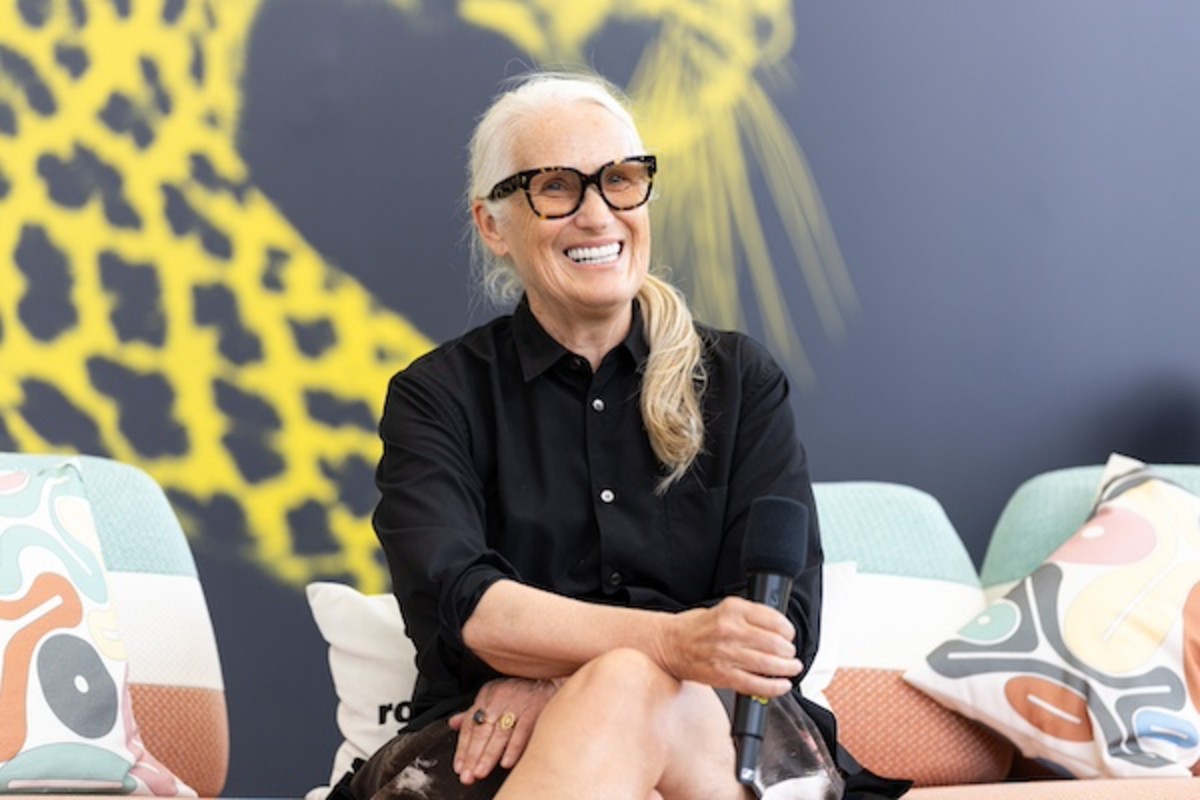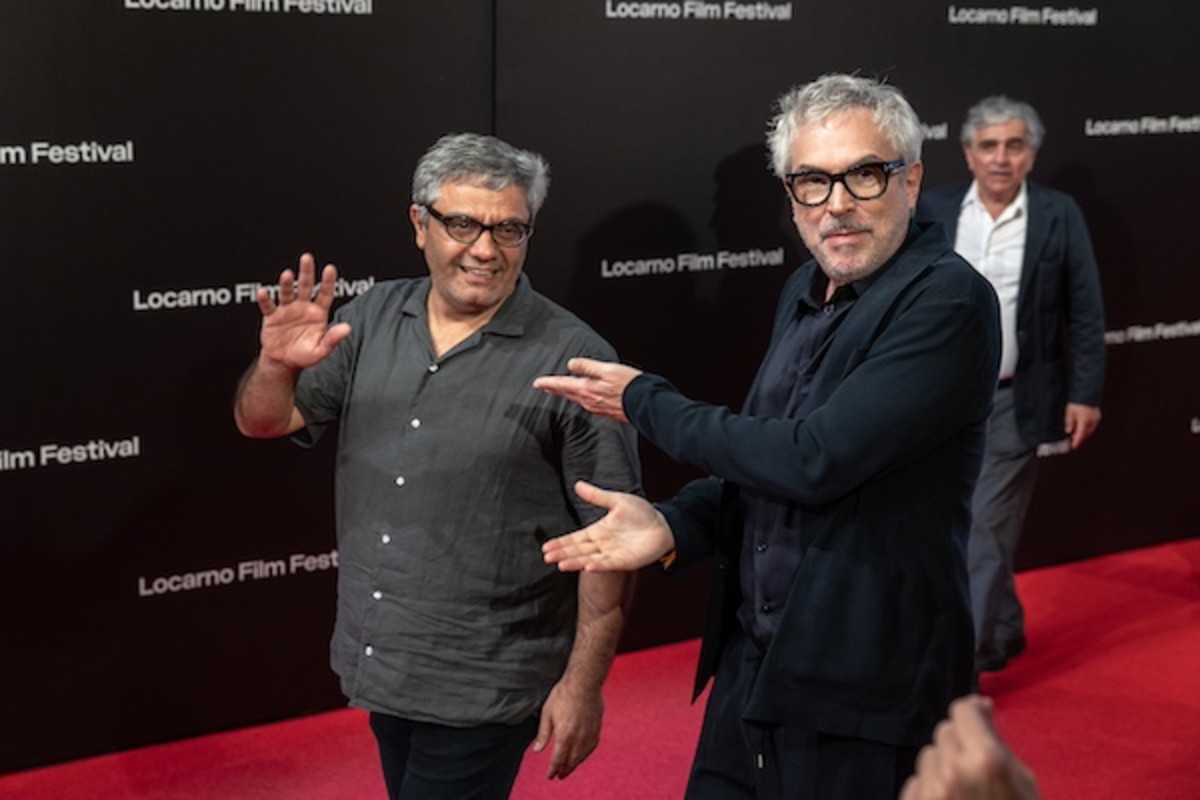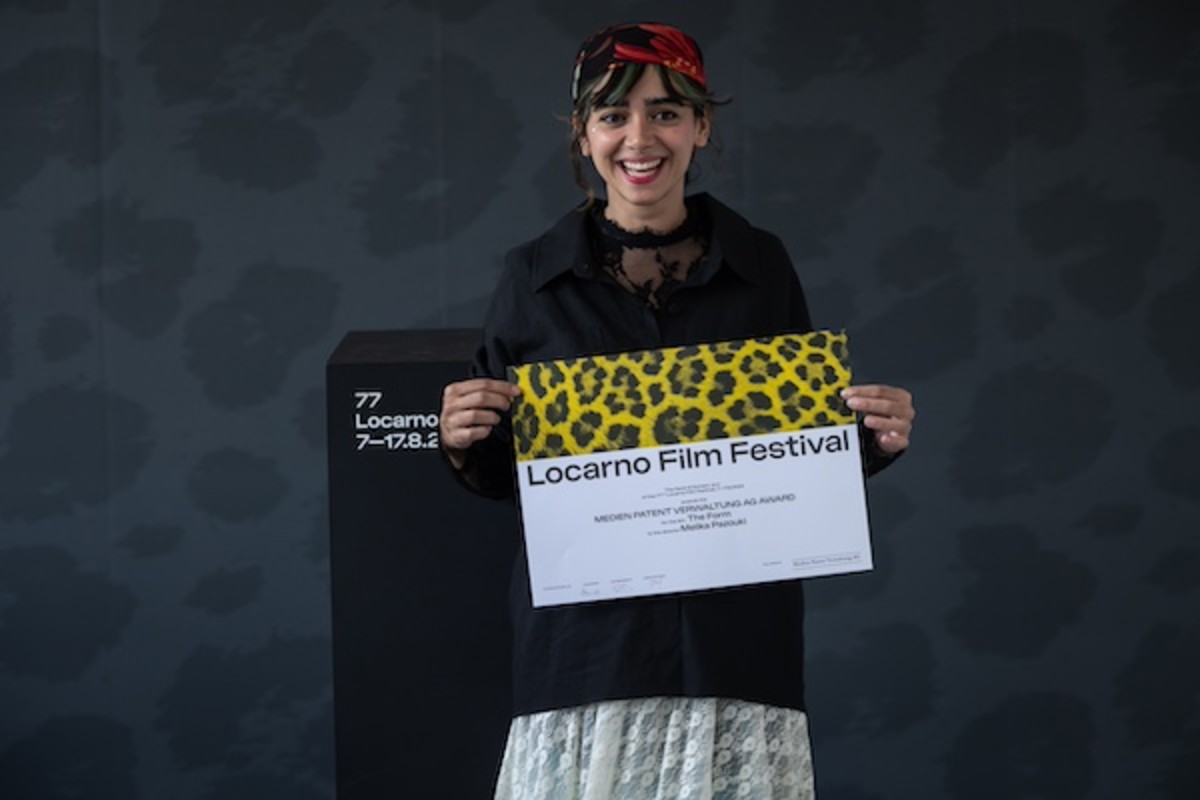Oscar-winning writer and director Jane Campion spoke with Dennis Lim at the opening night of her retrospective titled Jane Campion’s Own Stories, about Top of the Lake, The Piano, and being a female filmmaker.
Award-winning screenwriter and filmmaker, Susan Kouguell is a screenwriting professor at Purchase College, SUNY, and presents international seminars. Author of SAVVY CHARACTERS SELL SCREENPLAYS! and THE SAVVY SCREENWRITER, she is chairperson of Su-City Pictures East, LLC, a consulting company founded in 1991 where she works with writers, filmmakers, and executives worldwide. Twitter: @SKouguell
Click to tweet this article to your friends and followers!

Photo credit: Sally Bongers
“You can’t have the agenda to make someone feel. You have the agenda to tell the story with feeling or tenderly, and how anyone receives it, is how it is received.”
– Jane Campion
Oscar-winning writer and director Jane Campion spoke with Dennis Lim, Director of Programming, at the Film Society of Lincoln Center’s opening night of her retrospective titled Jane Campion’s Own Stories which runs from September 8-17.
Among Campion’s many accolades, she won an Academy Award for Best Original Screenplay for her 1993 film The Piano as well as the Cannes Film Festival’s Palme d’Or, the only female filmmaker to ever receive that honor. Campion is also the second of four women to ever be nominated for the Academy Award for Best Director.
Jane Campion’s work is often described as visual poetry; her distinct vision challenges the viewer with her thought-provoking and often nonconformist, psychologically complex, emotionally wrought and raw characters and their layered worlds. A masterful visual storyteller, her work is underscored with nuances of consistent tones and distinct moods in every scene.
Campion challenges the themes of the female gaze – how women are seen and how they see and capture the world around them – as well as women’s voices (both verbal and nonverbal) in her films, such as The Piano’s mute Ada, or Dawn in Sweetie who imitates and barks like a dog when snapping at her family.
Whether in film or in television, Campion’s work continues to revolutionize how stories about women and their relationships are conveyed. She pushes gender boundaries with her psychological examination of relationships and the lives of her characters with a distinct and raw vision.
Top of the Lake
 The award-winning television series, Top of The Lake, is Campion’s return to television since her 1990 An Angel at My Table, based on the autobiography of writer Janet Frame, which was first produced as a television mini-series.
The award-winning television series, Top of The Lake, is Campion’s return to television since her 1990 An Angel at My Table, based on the autobiography of writer Janet Frame, which was first produced as a television mini-series.
When describing the motivation for doing the project, Campion talked about her love for novels and their length and the opportunity to go more in depth with characters and stories.
I was dying to explore more characters. I saw “Deadwood” and rose from my chair. It was so brave, amazing and raw, it touched me and inspired me; I was thinking, this is where the freedom is. At the time of “In the Cut,” (2003) cinema was in a bit of a crisis. Everyone was always concerned about, ‘Will this character be likeable? Will this storyline be likeable?’ The thought of having to please people was uninspiring.
The Top of the Lake series was co-created with Campion’s film school friend and previous collaborator, Gerard Lee.
That was one of the gorgeous experiences to have a writer with you the whole time.
In thinking about Season 2, I felt we explored the scenes of Paradise and the wilderness, and so I thought about moving the story to Sydney and how Robin would kickstart her life again, and her drive towards finding her daughter. I was thinking about the idea of her having adopted out a child and carry that thought of the child for the 17 years, and how her daughter, Mary, would have thought about the mythical mother.
Jane Campion wrote the role of Mary, Robin’s daughter, with her own daughter, actress Alice Englert, in mind.
I loved writing the scene (when mother and daughter meet for the first time); it was one of my favorite scenes I ever wrote. It is such a cliché scene and it’s hard to put the air in something like this.
I do like crime stories. It appeals to that part of me that likes to find out the truth. I get quite obsessive – about it mattering, does the truth matter? A crime, a vacuous space around it, as much as you imagine it, there’s a reality around it. The mythic theme of the detective who has to go to the place where the criminal committed the act, it challenges you to imagine yourself. Crimes take you to the darkest places; it’s the restitution of society that it represents. We have the Elizabeth Moss character (Robin), particularly as a woman she holds the theme of being overlooked. She is restituting herself as well as Tui.
When you make films, you are telling stories and you try to do things that you personally are trying to discover in the world. When we made “Top of the Lake” and particularly with the women’s camp and the GJ character there is a particular take on life.
The Piano
 One of the most commercially successful independent films of all time and one of the top ten grossing films of 1993.
One of the most commercially successful independent films of all time and one of the top ten grossing films of 1993.
We were actually surprised with its box-office success. We met Harvey Weinstein (Miramax distributor/producer) who was extraordinary in loving up this movie and bringing these types of movies to a wider audience.
The financier was a concrete maker, and decided in his last years of life to fund filmmakers and share the profits with them. We were allowed to do the film exactly the way we wanted to do it.
Talking to people since then about the film, it’s such a female point of view. The fact that Ada doesn’t speak, her stubbornness, her interiority, her strength, her point of view, and the piano speaking for her, speaks about not giving a voice in the world – that is not to say you don’t have an opinion.
The Tenth Woman to Serve as Cannes Film Festival Jury President Since it Began in 1946
The Cannes Film Festival has been really good to me. The year I was president, I suggested an all-female jury. I think it would be really great because for the first time, all those men filmmakers would have to think: ‘What are all those women thinking? What are the women going to like about my movie?’ But they wouldn’t do it. I’ve spent my whole life asking, ‘What are the men thinking?’ and I think it’s time for them to ask, ‘What are the women thinking?’ in a different way than they would have done before.
There’s that feeling overall, ‘Oh, the women filmmakers, let them have that moment.’ That’s what’s really irritating.
Preparing for the Shoot
I do a lot of drawing and sketching to work out my shot lists and to imagine the props, how things will look in a scene, the lighting and how that might be, how the camera might move. Then when you come to set, you know that you’ve thought about what you want and what you need.
Inspiration and Making the Film Your Own
I’ve always been a big reader. I read a lot of diaries as well. Diaries make everything feel very fresh and very real. I’ve always been nosey – like how people organize their bedrooms, their kitchen. I’d be happy to stare at people all day long. Gerard would say, stop staring, it makes people uncomfortable.
I love poetry. I think I’m very influenced by poetry, that sense of Keats’ poetry, all poets. They make something that is so easeful. There’s that sense of always having been there. They find that beauty, that ease, and that memorable quality to a phrase. That inspires me.
I want things to feel at once like they’re effortless and at the same time that they haunt you. Because I’m working in a visual form, one of the things as a filmmaker is trying to do your own stuff. One of the things that grounds me is that I have a seminal image; something that I might have seen on the street somewhere, something that is actually seen by me.
I remember for “The Piano” I was thinking about Ada and the little girl. I was driving down the street and there was a tall girl and a short girl and they were walking very close together and they had this brown hair that was shining and wavy together and I thought, that’s Ada and Flora. That togetherness, that was the image that made me know what to do with them.
That’s one of the ways you know it’s yours. It becomes embodied in you and therefore you know the truth of it. That’s true meaning.
Get more information about the retrospective.





